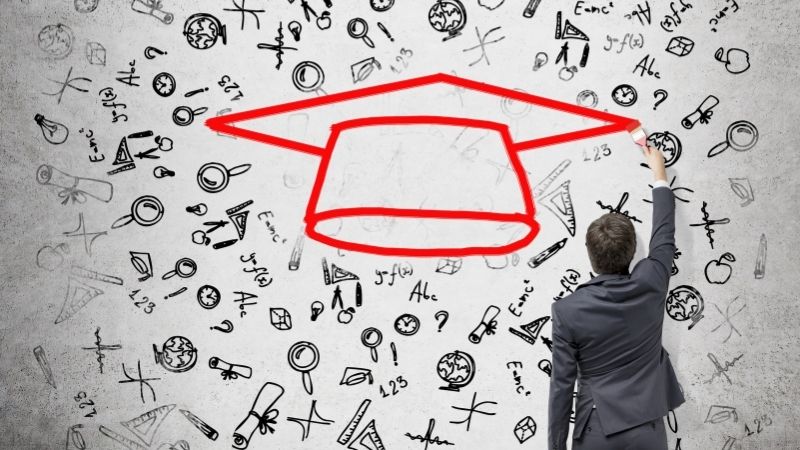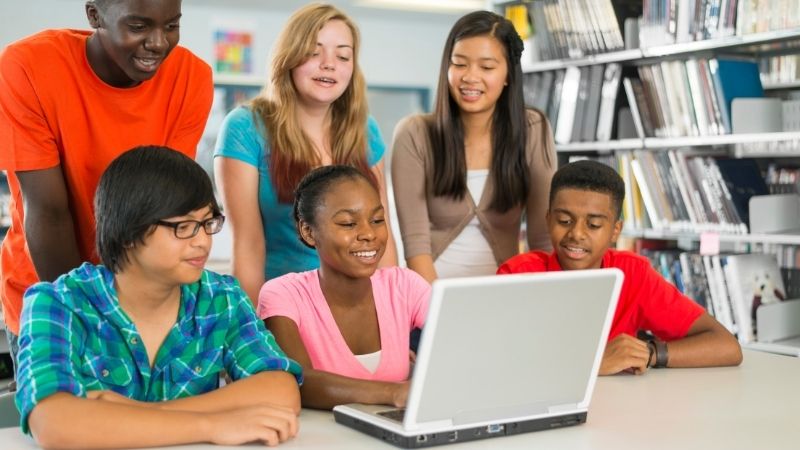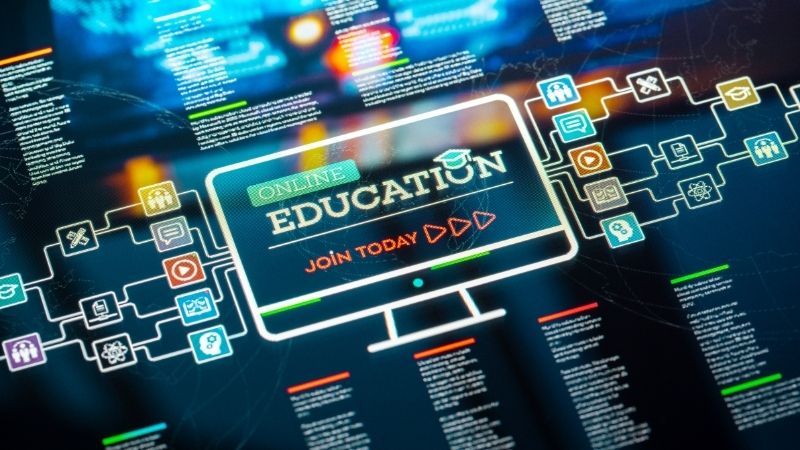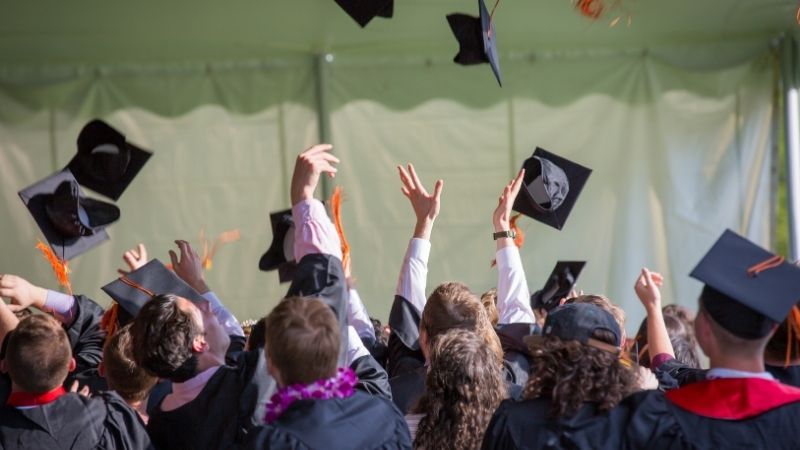
Peer interaction in high school plays a crucial role in students' social development. It encompasses various aspects such as peer pressure, friendships, bullying, and group projects. The adage 'You are the company you keep' highlights the influence of peers on individuals.
This article aims to explore the impact of peer interaction on students' social competence. It will examine how peer pressure shapes behavior, how friendships foster support systems, how bullying affects well-being, and how group projects facilitate positive interactions.
By analyzing empirical evidence and scholarly research, this article will provide an objective analysis of the significance of peer interaction in high school settings.
Key Takeaways
- Peer interaction plays a significant role in students' social development.
- Peer pressure can shape behavior and attitudes, but with strong self-esteem and supportive friends, students can resist negative influences.
- Friendships contribute to emotional well-being, effective communication skills, and the development of important social skills.
- Bullying can have detrimental effects on students' mental health, academic performance, and ability to form trusting relationships with peers.
Peer Pressure: Navigating the Influence of Peers in High School
Peer pressure in high school presents a significant challenge for students as they navigate the influence of their peers on their social development. Adolescents are particularly susceptible to peer pressure due to their desire for acceptance and belonging within their social circles. Resisting the negative influence of peers requires strong self-esteem, assertiveness skills, and an understanding of personal values and boundaries.
Peer support can play a vital role in helping individuals resist unwanted influences by providing encouragement, guidance, and alternative perspectives. Research has shown that having supportive friends who share similar values can help adolescents make independent choices and resist negative peer pressure.
Additionally, teaching students effective communication skills can empower them to express their opinions and assert their boundaries when faced with peer pressure situations.
The Power of Friendships: Building Social Skills and Support Systems
The formation and maintenance of friendships in adolescence can significantly contribute to the acquisition of social skills and the development of support systems. Friendships play a crucial role in enhancing emotional well-being by providing support and comfort during challenging times.

Through interactions with friends, adolescents learn about empathy, compassion, and understanding, which are essential for building positive relationships. Additionally, friendships enable students to develop effective communication skills as they navigate various social situations. They learn how to express themselves clearly, actively listen to others, negotiate conflicts, and collaborate effectively.
These interpersonal skills are crucial not only for establishing and maintaining friendships but also for future success in academic and professional settings. Overall, friendships offer a valuable platform for adolescents to develop important social skills and create strong support systems that contribute to their overall well-being.
Adolescents who experience bullying may face a range of negative consequences, including emotional distress, decreased academic performance, and social isolation. Understanding the long-term effects of bullying is crucial in order to promote empathy and inclusivity within educational environments.
Emotional Distress: Bullying can lead to increased levels of anxiety, depression, and low self-esteem among victims.
Decreased Academic Performance: Victims of bullying often experience difficulties concentrating on their studies due to the stress and fear associated with their experiences.
Social Isolation: Bullied adolescents may struggle to form trusting relationships with peers, leading to feelings of loneliness and social exclusion.
Long-Term Impact: The effects of bullying can extend into adulthood, impacting mental health and overall well-being.

To promote a safe environment for all students, it is important for schools to implement comprehensive anti-bullying programs that focus on promoting empathy among students and fostering inclusivity within the school community.
Fostering Positive Interactions: The Benefits of Group Projects in High School
Collaborative assignments in secondary education can cultivate effective communication skills and enhance problem-solving abilities among participants.
Through collaborative learning, students engage in group projects that promote knowledge acquisition and teamwork skills. Group projects provide opportunities for students to work together, share ideas, and contribute their unique perspectives towards a common goal. This cooperative environment fosters positive interactions among peers, as it requires communication and cooperation to successfully complete the task at hand.
By working collaboratively, students learn how to effectively communicate their thoughts and ideas with others, improving their interpersonal skills. Additionally, group projects encourage problem-solving abilities as students are required to analyze complex problems collectively and generate innovative solutions through collaboration.
Overall, collaborative assignments play a vital role in enhancing students' knowledge acquisition and teamwork skills while promoting positive interactions within the classroom setting.
Developing Social Competence: The Role of Peer Interaction in Students' Social Development
Research has shown that peer interaction plays a significant role in the development of students' social competence. Here are four key ways in which peer interaction influences social skills development and fosters positive interactions:
Peer influence: Interacting with peers allows students to observe and learn from one another, shaping their behaviors, attitudes, and values.

Friendship formation: Peer interaction provides opportunities for students to develop friendships, which can enhance their social support network and contribute to their overall well-being.
Impact of bullying: Negative peer interactions, such as bullying, can have detrimental effects on students' social competence and mental health.
Group projects: Collaborative activities like group projects promote positive peer interactions by fostering teamwork, communication skills, and problem-solving abilities.
Understanding the importance of peer interaction in social development can help educators create supportive environments that facilitate healthy relationships among students.
Frequently Asked Questions
How Can Students Navigate Peer Pressure in High School and Make Decisions That Align With Their Own Values and Beliefs?
Strategies for resisting peer pressure and making decisions aligned with personal values in high school include self-reflection, assertiveness training, and seeking support from trusted adults. These approaches empower students to navigate social influences effectively.
What Strategies Can Students Use to Build Strong and Supportive Friendships in High School?
Strategies for building strong and supportive friendships in high school involve building trust through open communication, engaging in shared activities, and promoting inclusivity by accepting and respecting differences. Research suggests that these strategies foster positive social development among students.
How Does Bullying in High School Impact Students' Social Development and Mental Well-Being?
Bullying in high school has detrimental effects on students' social development and mental well-being. It can lead to decreased self-esteem, increased anxiety and depression, and difficulties in forming trusting relationships, ultimately impacting their overall psychological well-being.

Initiatives that promote safe and inclusive environments in high schools and prevent bullying include the creation of safe spaces, implementation of conflict resolution programs, fostering positive peer interactions through group projects, and promoting awareness of the impact of bullying on social development.
In What Ways Do Group Projects in High School Foster Positive Interactions and Enhance Students' Social Skills and Collaboration Abilities?
Group projects in high school foster positive interactions and enhance students' social skills and collaboration abilities by providing opportunities for enhancing collaboration skills, developing effective communication, and promoting teamwork through shared responsibilities and mutual goals.
 Careers in EducationElementary EducationHigh School EducationEducational TechnologyTeaching StrategiesSpecial EducationPrivacy PolicyTerms And Conditions
Careers in EducationElementary EducationHigh School EducationEducational TechnologyTeaching StrategiesSpecial EducationPrivacy PolicyTerms And Conditions
